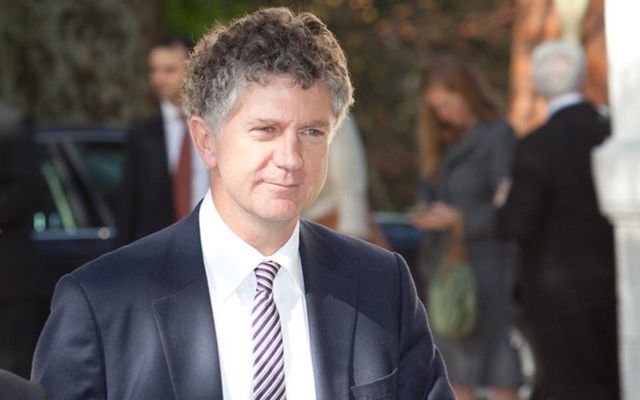Tony Blair’s former chief of staff, Jonathan Powell, has warned against a deal between the British Conservative Party and Northern Ireland’s Democratic Unionist Party.
Thursday’s General Election results saw the Conservative Party unexpectedly fail to win a majority of seats - meaning it will rely on the right-wing Ulster party to stay in power for the next five years.
60 year Powell was heavily involved in negotiating the Good Friday Agreement that brought peace to the province and told Sky News on Friday, “I really would appeal to the Government not to go down this path.”
“Since 1991 when a Tory [Conservative] Secretary of State for Northern Ireland said that we would remain neutral in Northern Ireland.
“Not take the side of the unionists, not take the side of the nationalists, that we had no strategic or selfish interest in Northern Ireland.
“If we find ourselves taking sides, how on earth are we going to mediate between the unionists and the nationalists where we’re trying to establish government?
Read More: DUP strive for best deal for Northern Ireland in Tory talks
“We have a political crisis there. Do we really want to make the political crisis there worse just so the [British] Government can stagger on?”
Powell added that John Major - the last time a Conservative Prime Minister with a small Parliamentary majority - hadn’t agreed a formal alliance with the DUP because “he did not want to be depending on [them] and find himself unable to be even handed in Northern Ireland.”
WATCH: Jonathan Powell, former chief British negotiator on Northern Ireland, explains how a Tory/DUP coalition cannot work. pic.twitter.com/qrXL0yTQWs
— EL4C (@EL4JC) June 9, 2017
John Major won a slender majority in 1992 and whilst his Government never entered into a formal deal with any other party it did become increasingly reliant on nine MPs from the Ulster Unionist Party - then the largest unionist party.
He added that the DUP’s fulsome support for Brexit was an additional problem.
“One of the three subjects the EU have put on the agenda for the initial negotiation on Brexit is the border between north and south.
“Now the DUP takes a very different view on Brexit than all the other parties in Northern Ireland. All the other parties, including the other unionist parties, voted to remain in the EU. 57% of the people of Northern Ireland voted to remain in.
“So if we go into that negotiation with the DUP supporting the Government, they’re obviously going to be taking the DUP position on Northern Ireland in or out of the EU.
“And that in itself is going to lead to another problem. We really don’t want a political crisis in Northern Ireland.”
Read More: Dramatic results in Northern Ireland elections reshape political future
In fact, leaving the EU was backed by two of the smaller parties in the Northern Ireland Assembly.
The DUP’s vision of Brexit already looks similar to the Conservative Party’s: both have committed to leaving the Single Market and the Customs Union which mandates common standards in goods across the bloc and a single trade policy. They advocate an open border between the north and south of Ireland but would fiercely oppose any Brexit deal that gives Northern Ireland a slightly different deal to the rest of the United Kingdom.
It is not yet known what concession the party will extract from the British Government in return for backing them. More money than already promised for senior citizens is likely and a reduction in corporation tax to 12.5% - the same level as in the Republic of Ireland - also probable.




Comments